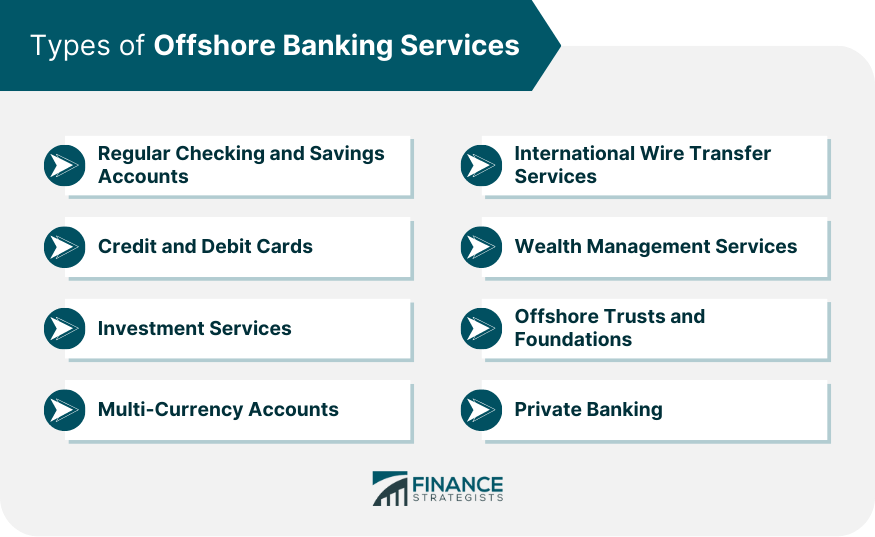Common Questions About Offshore Company Formations Answered by Experts
Discovering the Solutions Offered in Offshore Company Formations: What You Need to Know
Offshore firm formations give a variety of services created to promote service success while making sure conformity with legal requirements. These services can consist of business enrollment, legal suggestions, and setups for personal privacy through candidate directors. Additionally, factors to consider around tax optimization and possession defense are vital. Understanding these components can substantially affect one's decision-making process. Nonetheless, the intricacies of steering and choosing the right territory through laws elevate even more concerns. What should one take into consideration following?
Recognizing Offshore Business Structures
What defines an offshore business framework? An offshore business is normally signed up in a foreign territory, usually characterized by favorable regulatory atmospheres and confidentiality. These structures are developed to give lawful splitting up in between the firm's properties and its proprietors, making it possible for a range of functional and economic advantages. Offshore business can be established as different types, consisting of minimal liability business (LLCs), corporations, or trust funds, depending on the governing structure of the chosen territory.
Secret functions of these structures consist of boosted personal privacy, property protection, and convenience of global organization deals. Furthermore, they commonly require very little local presence and can facilitate the management of financial investments throughout borders. The option of a details offshore jurisdiction can significantly affect the operational capabilities and compliance needs of the business. Generally, understanding the intricacies of overseas business frameworks is vital for investors and entrepreneurs looking for to enhance their service methods.
Tax Benefits of Offshore Companies
Offshore companies offer significant tax obligation advantages that can boost productivity and financial performance for company owner. Among the main advantages is the possibility for minimized business tax obligation rates, which can be especially reduced than those in the proprietor's home country. Many offshore territories provide tax obligation incentives, such as tax vacations or exemptions on specific sorts of income. Furthermore, offshore firms may take advantage of favorable tax obligation treaties, enabling the decrease or removal of withholding tax obligations on returns, aristocracies, and passion. This can lead to enhanced capital and better reinvestment possibilities. Some overseas entities can run under a territorial tax obligation system, which only taxes income created within that jurisdiction. This framework can be especially beneficial for companies participated in international trade or online services, enabling them to optimize their tax obligations while maintaining compliance with global regulations. Generally, these tax obligation benefits can significantly add to lasting monetary success.
Personal Privacy and Privacy Attributes
How can company owner protect their sensitive information while benefiting from global possibilities? Offshore firm formations supply durable personal privacy and confidentiality functions that interest entrepreneurs looking for discernment (Offshore Company Formations). Lots of jurisdictions provide nominee solutions, enabling people to appoint 3rd parties as investors or directors, thus concealing their identities from public records
Additionally, strict information security laws in various overseas territories guarantee that sensitive details continues to be confidential. Offshore firms typically gain from enhanced banking personal privacy, with regulations that protect client identities and monetary transactions.
The use of exclusive addresses for registered offices reduces direct exposure to public scrutiny.
These privacy steps enable company owner to operate with better self-confidence, knowing their delicate information is secure. By leveraging these functions, business owners can focus on calculated growth opportunities without the constant issue of info exposure.
Asset Protection Approaches
While guiding via the intricacies of international service, entrepreneurs must focus on asset protection to safeguard their riches from prospective dangers. Offshore business formations use durable methods for minimizing direct exposure to lawful claims, financial institution activities, and political instability. One efficient technique includes developing a minimal obligation company (LLC), which separates individual possessions from service responsibilities, therefore giving a guard versus suits.
In addition, entrepreneurs can utilize trust funds to hold assets, ensuring they continue to be shielded from financial institutions and lawful disputes. Territories with strong possession defense laws, such as Nevis or the Cook Islands, are frequently preferred for their beneficial laws. Applying proper insurance plan and diversifying investments additionally boosts safety and security, reducing vulnerability to market variations. In general, utilizing these techniques within an offshore framework not only advertises wide range conservation however likewise promotes long-term financial stability, permitting entrepreneurs to concentrate on growth and advancement without excessive issue over possession direct exposure.

Opening Offshore Bank Accounts
Opening up offshore bank check out here accounts involves understanding the different account kinds readily available, which can deal with various economic requirements. Additionally, the documentation procedure is vital, as it commonly calls for certain forms of recognition and proof of home. This introduction will clarify the alternatives and requirements for people and companies seeking to establish overseas banking relationships.
Account Kind Provided
Offshore savings account been available in various types, each developed to cater to different financial needs and objectives. Personal accounts are customized for individuals looking for personal privacy and asset security, while corporate accounts facilitate company transactions and monitoring of company funds. Multi-currency accounts are popular amongst worldwide investors, allowing for transactions throughout different currencies without extreme conversion charges. In addition, cost savings accounts supply passion on deposits, attracting those wanting to expand their possessions firmly. Some financial institutions also give financial investment accounts, offering customers accessibility to numerous investment chances. Each account kind might include unique advantages and features, allowing clients to select the one that straightens ideal with their monetary methods and goals. Understanding these choices is fundamental for efficient overseas banking.
Needed Documents Process
To effectively open up an overseas checking account, possible customers must prepare a set of certain documents that satisfy regulatory demands. This generally includes a valid key or government-issued identification to verify identity. Clients are also called for to provide proof of home, such as an utility expense or copyright, dated within the last click resources 3 months. Additionally, a thorough summary of the resource of funds is required to ensure compliance with anti-money laundering guidelines. Some financial institutions might request an organization strategy or recommendation letters, especially for business accounts. Each jurisdiction might have unique requirements; consequently, speaking with a specialist in overseas services is a good idea to ascertain all paperwork is precise and full, helping with a smoother account opening procedure.
Compliance and Governing Considerations
Navigating the intricacies of compliance and regulative factors to consider is essential for any entity pursuing overseas business formations. Entities should stick to numerous global and regional regulations that control economic activities, taxes, and business administration. Secret regulations frequently include anti-money laundering (AML) laws, recognize your client (KYC) protocols, and reporting demands to guarantee openness.
Furthermore, business must remain watchful concerning changes in legislation that may affect their functional status. Failing to conform can lead to extreme fines, including fines or the dissolution of the business. Engaging with legal and financial experts that specialize in offshore regulations can supply vital advice in guiding via these complexities.
Furthermore, comprehending the implications of tax obligation treaties and worldwide contracts is essential for preserving compliance. Companies ought to prioritize developing durable compliance frameworks to mitigate risks and guarantee lasting sustainability in their overseas endeavors.
Picking the Right Offshore Jurisdiction
Just how does one identify the most appropriate offshore jurisdiction for firm formation? The choice of jurisdiction is critical and involves several factors. One have to analyze the lawful structure and policies governing firms in potential territories. Desirable tax regimens, such as reduced or absolutely no corporate tax obligations, are often a primary factor to consider. Furthermore, the political stability and credibility of the territory play considerable functions in ensuring the defense of possessions and conformity with worldwide criteria.
The ease of access of financial solutions and the ease of doing company needs to not be forgotten. A jurisdiction offering robust discretion arrangements can also be helpful for those seeking privacy. Evaluating the expenses linked with company development, upkeep, and possible lawful costs is important. By weighing these aspects, one can make an educated decision, ensuring that the chosen offshore jurisdiction lines up with their business goals and operational demands.

Frequently Asked Inquiries
How much time Does the Offshore Company Formation Refine Usually Take?

The offshore company formation process typically takes anywhere from a couple of days to a number of weeks. Offshore Company Formations. Factors influencing this timeline include territory, documents efficiency, and specific company included in the formation process
What Are the First Expenses Associated With Establishing up an Offshore Business?
The preliminary expenses for establishing an offshore company can differ extensively, generally incorporating enrollment charges, legal expenses, and surcharges for services like financial institution account arrangement and conformity, often completing numerous hundred to numerous thousand bucks.
Can People Kind Offshore Companies Without Expert Aid?
People can technically form offshore firms separately; nonetheless, they typically run into intricate legal and regulatory demands. Offshore Company Formations. Professional aid is suggested to navigate these obstacles successfully and guarantee compliance with pertinent laws and guidelines
What Papers Are Needed for Offshore Firm Enrollment?
The papers required for overseas business enrollment normally consist of identification evidence, a detailed organization plan, proof of address, and, in some jurisdictions, see this here a statement of valuable possession and resolutions from supervisors.
Exist Continuous Upkeep Costs for Offshore Companies?
Continuous maintenance costs for offshore companies are normally required to ensure compliance with regional laws. These fees might consist of annual revival fees, signed up agent services, and bookkeeping, differing by jurisdiction and particular business framework.
